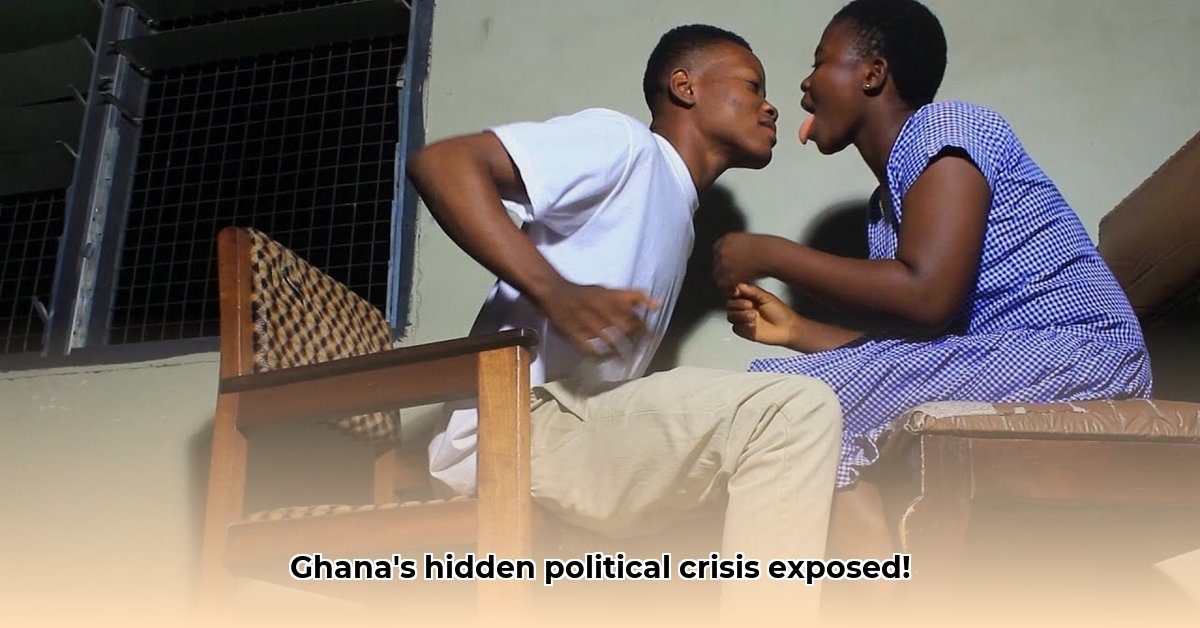
ghanaleak.com: Unmasking Ghana's Political Upheaval
Ghana, often lauded for its democratic progress, faces significant political instability. This isn't a sudden crisis, but a culmination of long-standing economic woes, weakened democratic institutions, and the spread of misinformation, all exacerbated by underlying ethnic tensions. Information, potentially sourced from ghanaleak.com (assuming verification), illuminates these challenges.
Economic Troubles: A Perfect Storm
Ghana's economy is struggling. High inflation erodes purchasing power, leaving many struggling. Unemployment is rampant, and a weakening currency exacerbates the hardship. Allegations of mismanagement and corruption, as potentially detailed in leaks from ghanaleak.com, significantly worsen the situation. This economic hardship fuels public anger and frustration, creating a climate ripe for unrest. How can Ghana address this persistent economic crisis and regain public confidence?
Cracks in the Foundation: Democratic Institutions Under Strain
Reports suggest that Ghana's democratic institutions are under immense strain. Concerns exist about judicial independence and the fairness of elections. The alleged leaks from ghanaleak.com, if verified, could reveal systemic weaknesses, raising serious questions about the integrity of Ghana's government. A healthy democracy requires transparency and accountability—elements seemingly lacking, given the allegations. Is Ghana's democracy robust enough to withstand these pressures, and what reforms are necessary?
The Information War: Social Media and the Spread of Disinformation
The rapid spread of information via social media complicates the situation. Distinguishing fact from fiction is increasingly difficult, with misinformation and biased narratives fueling tensions. The sheer volume of information, potentially including leaks from ghanaleak.com, makes discerning truth challenging. How can Ghana combat the spread of disinformation and foster a more informed public discourse?
Ethnic Tensions: A Deep-Rooted Problem
Existing ethnic divisions are reportedly being exploited to worsen political turmoil. Some allege that these divisions are manipulated for political gain, further destabilizing the nation. Information from ghanaleak.com, should it prove authentic, might provide insights into this manipulation. This threatens to fracture the nation along ethnic lines. Can Ghana overcome these deep-seated divisions to foster national unity and stability?
Charting a Course Forward: Potential Solutions
Addressing Ghana's instability requires a multifaceted approach tackling the root causes. This demands comprehensive reforms across various sectors.
Economic Reform: Implement policies to stimulate job creation, control inflation, and stabilize the currency. This aims to improve living standards and bolster public confidence. (Challenges: Resistance to change, significant investment needs, potential for unintended consequences.)
Strengthening Democratic Institutions: Promote judicial independence, ensure free and fair elections, and enhance transparency. The goal is increased public trust and a more stable political environment. (Challenges: Deep-rooted corruption, political resistance, limited resources.)
Addressing Ethnic Tensions: Promote inclusive governance, foster inter-ethnic dialogue, and combat hate speech. This aims to reduce conflict, improve social cohesion, and strengthen national unity. (Challenges: Historical prejudices, deeply ingrained divisions, lack of trust.)
Combating Misinformation: Implement media literacy programs, support fact-checking, and promote responsible social media use. The aim is to reduce false narratives and foster a better-informed populace. (Challenges: Rapid information spread, online content regulation difficulties, potential for censorship.)
These reforms require strong leadership, cooperation among stakeholders, and a commitment to transparency and accountability. The information from ghanaleak.com, if credible, should serve as a catalyst for this crucial transformation. The government, civil society, and the international community must collaborate to navigate this challenging period. The path forward is complex, but with commitment and a shared vision, Ghana can overcome this crisis and build a more stable and prosperous future.